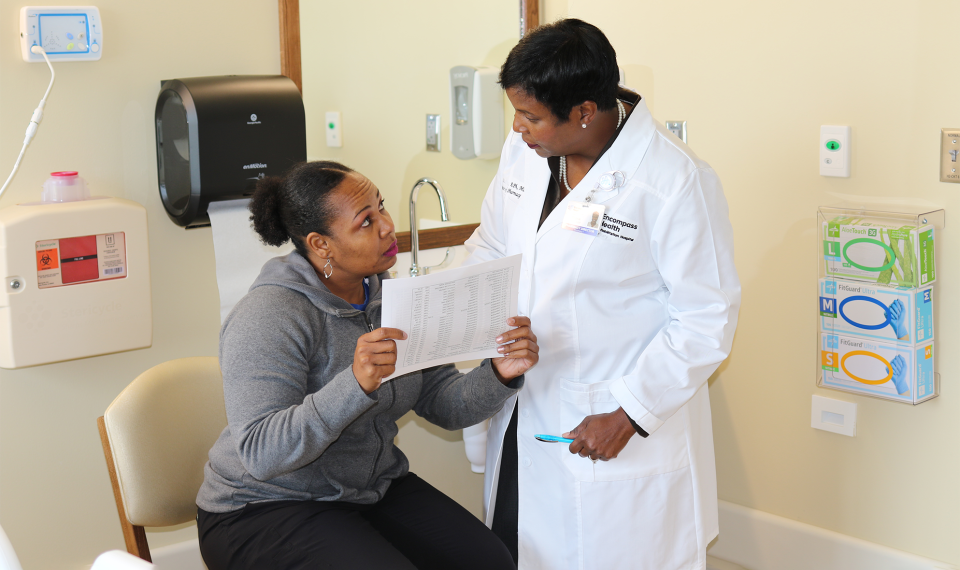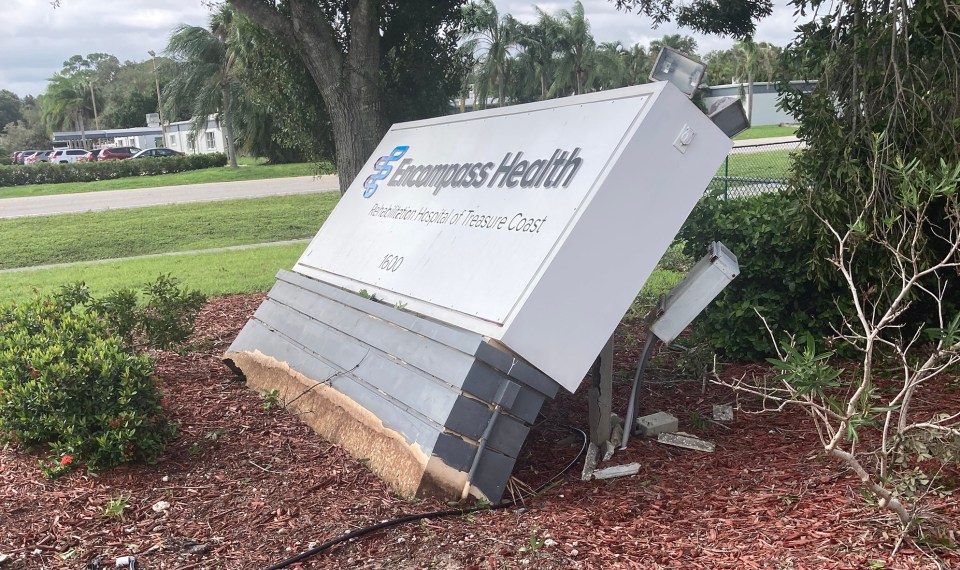Everyone expects to find pharmacists and pharmacy technicians at their local pharmacy or acute care hospital, but did you know these professionals can also be found in other healthcare settings, including inpatient rehabilitation? In fact, every Encompass Health inpatient rehabilitation hospital across the country has pharmacists on staff. These indispensable members of our interdisciplinary care teams function in a multitude of ways to ensure our patients receive safe and effective medication-related care during every step of their rehabilitation journey.
Prior to Arrival
Most patients who visit inpatient rehabilitation hospitals are on a marathon of recovery within the healthcare system. They have often have been cared for in other settings prior to coming to Encompass Health. Our pharmacy professionals are often involved in the care of patients before they even enter our doors. Once it has been determined a patient will be coming, pharmacy staff begin collecting as much information about their current medication orders as possible. This is the beginning step of a broader process called medication reconciliation. It is aimed at ensuring that our physicians have accurate and timely information about a patient’s medications so that orders continued or started during their hospitalization are safe and effective.
During Inpatient Rehabilitation
Once patients arrive, pharmacy professionals ensure that ordered medications are available when scheduled to be administered. Medication side effects can sometimes interfere with a patient’s ability to fully participate in all of the therapy activities scheduled for them. Pharmacists monitor for these side effects and make recommendations to the patient’s physicians to make adjustments in dosing, timing or medication selection to reduce or eliminate any issues.
Preparing for discharge
When the rehabilitation program has concluded and patients are preparing for discharge, our pharmacy professionals work with case managers to prepare for each patient’s transition. This preparation involves reviewing the list of medications that a patient will be instructed to take after discharge. Patient education is scheduled, paying special attention to medications that may be new and unfamiliar to the patient. Making sure that each patient understands their medication list and has the opportunity to ask any questions about their list prior to discharging is an important safeguard. Patients are less likely to have issues requiring unplanned follow-up care when they take their medications as instructed.
A unique aspect of being a pharmacist in the inpatient rehabilitation setting is the opportunity to work at the bedside. Our pharmacists get to form relationships with patients and witness them make progress and reach their goals. Most pharmacists go into the profession because they want to help people, and being able to have a front seat to see the transformations that occur in our hospitals—and knowing you had a hand in it—is incredibly fulfilling.
Our employees set the standard
Looking for a change? Explore career opportunities at Encompass Health.
Visit our career siteThe content of this site is for informational purposes only and should not be taken as professional medical advice. Always seek the advice of your physician or other qualified healthcare provider with any questions you may have regarding any medical conditions or treatments.




